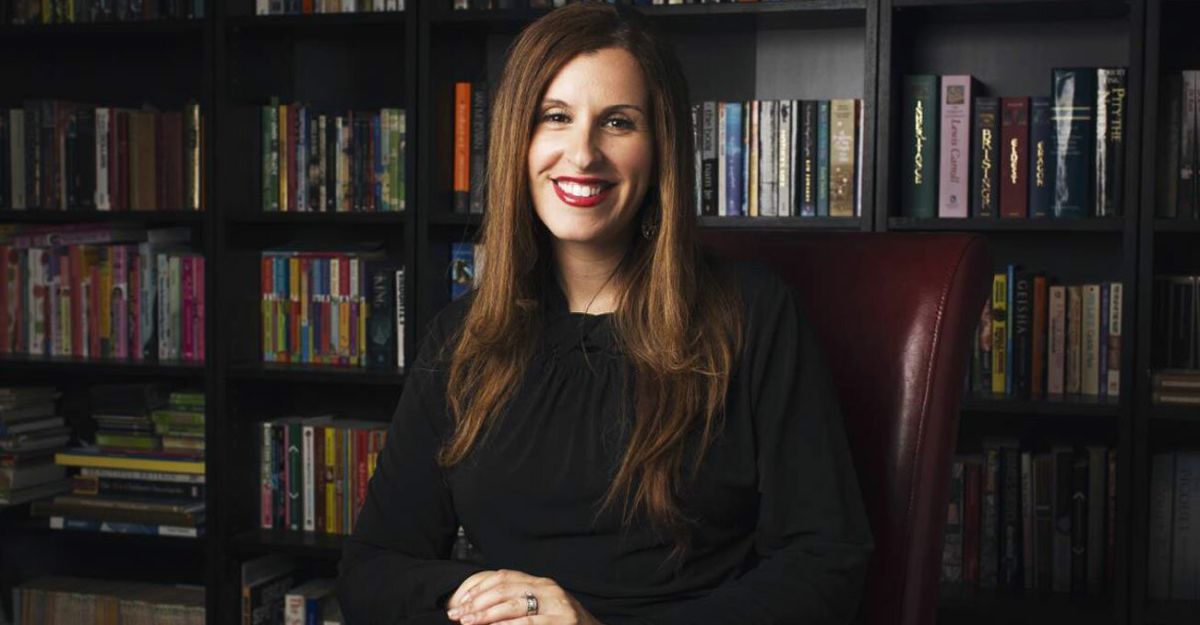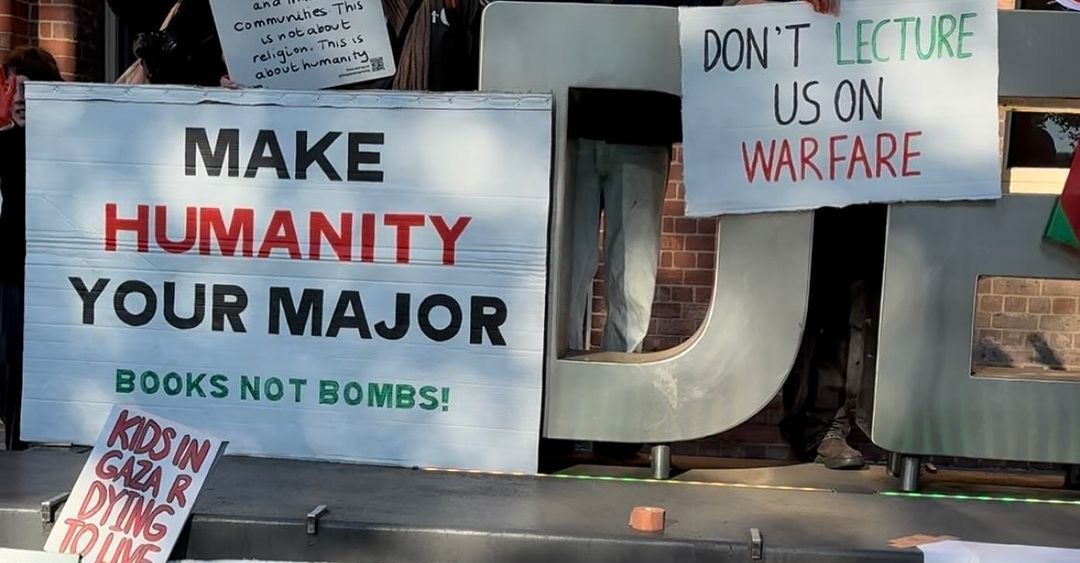Recently I attended the National Tertiary Education Union’s Staff Rally at the University of Melbourne’s Gaza Solidarity Encampment. It was an opportunity for the university’s academic and professional staff to show support for students who are demanding that the university cut ties with weapon manufacturers and other institutions that are enabling the assault on Gaza.
The rally was a moving and important example of a university community doing what it does best: coming together to critique structures of power and political hypocrisy. Even more importantly, it was a chance to stand in solidarity with the university staff and students across Palestine who have been displaced, imprisoned and killed.
Many of the university’s staff again showed up when they formed a picket line to protect students staging a sit-in at the Arts West Building on the university campus. The students have renamed the building Mahmoud’s Hall, in honour of Mahmoud Alnaouq, a Palestinian student who won a scholarship to study at the university but was killed with his family in an Israeli airstrike this past October.
As a researcher focused on Australian social work’s complicity in settler-colonialism, these acts of solidarity had me thinking about what social work institutions are doing to mobilise against what Israeli historian and genocide studies scholar Raz Segal has called a “textbook case of genocide.” The answer is, at least publicly, very little.
Amid Israel’s ongoing assault on Gaza, the professional body representing social workers, the Australian Association of Social Workers (AASW), has yet to issue a public statement condemning the violence or calling for a permanent ceasefire.
Social work has an ethical and moral duty to respond to what is likely the gravest human rights crisis of our time. The AASW clearly recognised this obligation in 2022 when it issued a statement in solidarity with the people of Ukraine in response to Russia’s invasion, and provided a list of suggested actions for social workers to take in support of Ukraine. The International Federation of Social Workers’(IFSW) had a similar approach. In its statement, the IFSW said that “further action was needed by IFSW members” to support refugees of the war and requested that its members contact the IFSW to help facilitate this.
The only public acknowledgement of Israel’s assault on Gaza thus far has been a Facebook reposting of an IFSW statement calling for a ceasefire on 8 April 2024. The post accompanying the link said simply, “the [IFSW] have shared the following statement on the Palestine/Israel conflict.” It provided no indication of whether the association itself supported the statement, or what other actions it would be taking to support Palestinians. This lacklustre response from the global social work community toward Palestinian suffering is unacceptable.
*
On 14 October 2023, the Palestinian Union of Social Workers and Psychologists (PUSWP) released a statement calling upon the social work community to end this silence. They argued that “this international silence…has given the green light to the occupiers to commit their crimes.” The response to this call from the IFSW came on 30 October 2023. It was a textbook example of the “both sides” view favoured by many health and social service institutions, including the American Medical Association and the National Association of Social Workers. In its statement, the IFSW called upon the international community to stop taking sides and urged both parties to work toward “building the trust necessary for addressing the root causes of the conflict.” Yet it never actually defined what it thought the root causes were.
It should go without saying that the words put forward by the IFSW fell far short of what our Palestinian colleagues and ethical obligations demand of us. The PUSWP agreed. In response to an end-of-year email sent by the IFSW in December 2023 where it wished its members “a joyful holiday season and a successful year ahead”, the PUSWP responded by saying “Congratulations on the new year, you who master silence.”
*
Since its initial October 2023 statement, there has been a shift in tone from the IFSW. The February 2024 statement called for a permanent ceasefire and was more forceful in its critique of a “preventable humanitarian crisis of unprecedented scale”, expressing solidarity with the people of Gaza and Palestine. It released another statement on May 3 in support of social work students and staff who are participating in Gaza Solidarity Encampments.
In this latest statement, the IFSW argued that “as social workers, it is our ethical duty to stand in solidarity with those who seek justice and peace.” For myself and many of the other social workers I know, it was these ethical commitments that drew us to the profession in the first place. So, for many, the failure of the AASW and other social work institutions to take a stand in response to Israel’s genocide in Gaza is a reminder of the gap between the profession’s espoused ethical ideals and its practice. I say another reminder because one does not have to dig too deep to find other historical and contemporary examples of social work’s silence and complicity in settler-colonial oppression.
We are witnessing the hollowing out of the ethical and moral obligations that are central to social work. As “reformed social worker” and academic Chris Maylea has argued, this version of social work is a “toothless, depoliticised” form that taints the pursuit of radical social change.
Resisting this silence are the collectives of social workers who will not allow mainstream social work’s hypocrisy to go unacknowledged. Here, a group of social workers have formed a collective called Social Workers for Palestine Australia. In the absence of a coordinated response from the AASW, it has taken on the crucial role of providing guidance, support, and information to social workers who are working with families arriving from Gaza.
The collective is also demanding accountability. They have started a petition that calls upon the AASW to end its position of neutrality and use their political resources to lobby for a ceasefire. At the time of writing, it has received 882 signatures. They have also written to the AASW demanding that they make a statement. The response from the AASW was that “the [IFSW] has already made a statement about this situation.”
So, what could the AASW be doing instead? It could engage in good faith with groups like Social Workers for Palestine Australia and change its approach to ensure it aligns with its own Code of Ethics. It could urge its membership to actively participate in the Gaza solidarity campaign, as many unions are doing. It could facilitate teach-ins so that social workers can build their understanding of the settler colonial project that laid the foundations for the present-day crisis in Gaza. It could mobilise social workers to volunteer for organisations that support Palestinians refugees like Palestine Australia Relief and Action. All of these are actions expected of an academic discipline and profession which defines its purpose as “…upholding human rights and social justice.” To speak out and act in support of Palestine is fundamental to what social work is and does.
Image: Flickr



